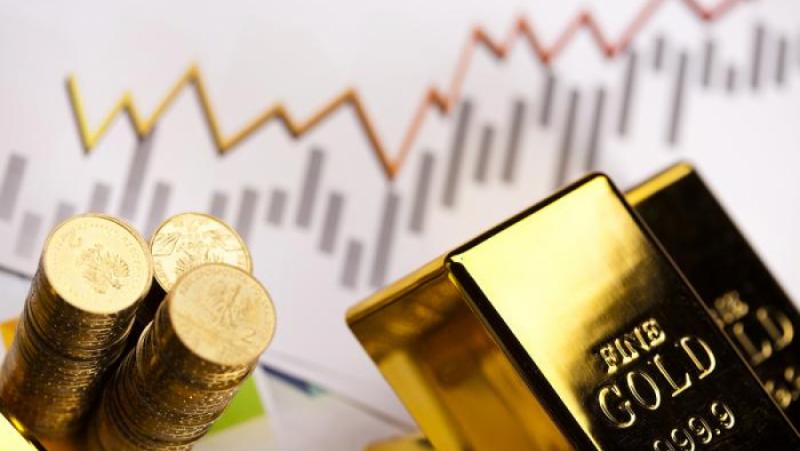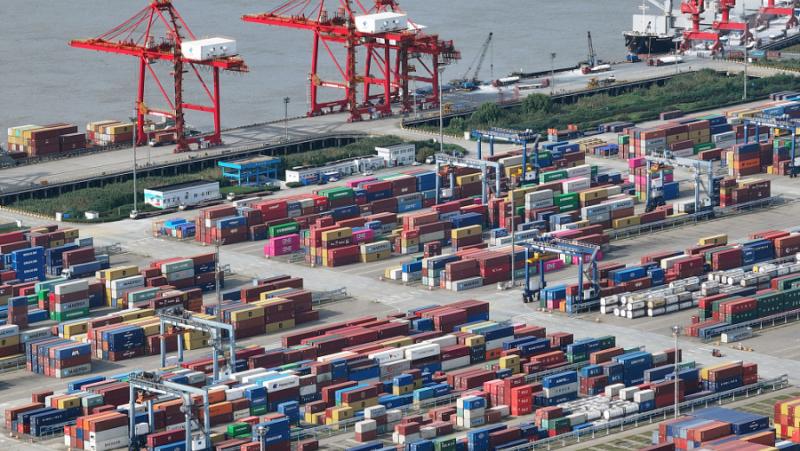/ world today news/ It will soon be two years since the West “froze” a significant part of the Russian Federation’s international reserves. Russia’s special military operation (SMO) in Ukraine began on February 24, 2022, and at the end of the same month, leading Western countries blocked (arrested) the foreign currency assets of the Bank of Russia in the amount, as officials from the Central Bank and the Ministry of Finance Russia was then said to be approximately $300 billion, which at the time amounted to approximately half of all international (gold and foreign exchange) reserves of the Russian Federation.
There are already precedents in recent history for some countries to freeze the assets of other countries. As a rule, such actions were a means of pressure to change in a desired direction the behavior of the state whose assets were blocked.
As a rule, authorities that have taken decisions to freeze assets have not attempted to confiscate assets. Confiscations are carried out only in exceptional cases. But, first, according to the decision of the international courts.
Secondly, we are talking about assets owned by legal entities and individuals of other countries. But nothing about assets in the form of central bank currencies. According to written and unwritten norms, the assets of Central Banks were immune from confiscation, nationalization and any other expropriation.
But in the case of the foreign currency assets of the Bank of Russia, the West decided to break the previously existing norms and traditions, that is, to put a paw on them. Or even simpler: to steal them. A good justification was invented for this: the expropriated funds should go to help Ukraine. But this is nothing more than an excuse.
Economists have already estimated that up to 90 percent of American aid to Independence went to the United States, or more precisely to American suppliers of arms, ammunition and military equipment.
Over the course of roughly the last two centuries, “civilized” Western countries have passed laws that strengthen the inviolability of ownership of everything: land, natural resources, real estate, factories and factories, bank accounts, scientific and technical information, other intangible assets, etc.
The confiscation of assets of the Russian Federation, especially those on the balance sheet of the Russian Central Bank, contradicts many laws and even the constitutions of the countries that have “frozen” such assets.
The costs associated with such confiscations clearly outweigh the benefits that the expropriators may receive from the appropriation of Russian assets. The benefit turns out to be “one-time”, but the costs can be permanent, so that it is impossible to calculate them.
And within Western countries, a struggle for the redistribution of property may arise. And the current partners of such countries will begin to withdraw their assets. In short, confidence in countries that risk stealing Russian assets will be undermined. And trust, as we know, costs a lot.
For almost two years now, I have been observing ritual dances around Russian assets in the West. Politicians and bureaucrats greedy for these assets try to change the laws so that confiscation does not look like theft.
Initially, they promised that such a rework would take several months. Now it turns out that it takes years and years. And some skeptics argue that any change is still fraught with undermining the sanctity of the institution of property rights, with all the implications that entails.
There are many proverbs and catchphrases in the Russian language that accurately describe the unhealthy atmosphere created in Western countries around Russian assets. Above all, I remember the words from I.A. Krylov’s fable “The Fox and the Grapes”: “The eye sees, but the tooth tingles.”
The following phrases are also suitable: “The elbow is close, but you will not bite”; “He loses his own good, but desires another’s”; “And I want to slaughter myself, but my mother won’t let me.” Moreover, Western politicians and government officials who covet Russian property can be compared to those who, according to the Russian proverb, “share the skin of an unkilled bear.”
The “Russian bear” is alive and can even bite. Attempts to separate her skin for foreign “hunters” may end in failure.
The subject of the frozen Russian assets is one of the leading ones in the Western media. But they are all surprisingly monotonous and uninteresting. They go through a range of options to steal assets. But these options provide a choice between bad and all bad.
There are no good options and they are not visible. It is easier to invent a perpetual motion machine than to invent a “good” version. I would suggest a common epigraph for such posts: “I want to slaughter myself too, but my mother won’t let me.”
By “want” we must understand the desire of the authorities of Western countries to steal. By “hesitant” we mean their fear of losing international credibility. “Mum doesn’t give” refers to the current legislative framework that prohibits theft.
I will quote one of the typical Western publications of this kind, the author of which is a well-known expert in the West, Nicolas Veron, a senior researcher at the private analytical organization Bruegel and the Peterson Institute for International Economics in Washington, DC.
His research focuses on financial systems and financial reforms around the world, including global financial regulatory initiatives and current developments in the European Union. In September 2012, Bloomberg Markets included Veron in its annual list of the 50 most powerful people on the planet.
On December 20, N. Veron published the article “The European Union must do better than to confiscate Russia’s reserves” (“The European Union must do better than to confiscate Russia’s reserves”).
Veron’s key point is that confiscating foreign reserves would be a serious mistake. We have to be content with the income these Russian assets provide. Veron did not discover America here.
The idea of collecting income from frozen Russian assets was expressed by some European experts already last year. Then they were called “opportunists” and “minimalists”.
But after about a year, the “maximalists” began to call themselves “empty dreamers” and “spotlights”. And the “opportunists” may have regained the title of “serious people”. And Nicolas Veron is from their cohort.
As an expert close to Brussels, Nicolas Veron provides the latest data on Russian frozen assets. At least €206 billion of Russian reserve assets are held under EU jurisdiction, more than three-quarters of the total €265 billion (about $280 billion) estimated by G7 finance ministers to be frozen at the end of February 2022. Some were frozen by Switzerland and Singapore, but the amount is small and not included in the above figure.
Approximately 180 billion euros are held in the accounts of the Belgian depository company Euroclear (the world’s largest settlement and clearing system designed to serve international securities). Another few billion euros in the Luxembourg depository Clearstream.
Although the United States does not disclose how many foreign reserves have been frozen in its jurisdiction, Veron estimates that the amount does not exceed $10 billion.
There are no figures for Canada and Australia, but Veron is confident that frozen assets there are even smaller than in the United States.
Although the G7 coordinates member countries’ policies regarding Russian foreign exchange reserves, the final decision will be made by Europe. And more precisely Belgium, which, as you know, is not part of the G7.
If the reserves are confiscated, the main big negatives will go to Europe and more precisely to Belgium. Veron is not at all sure that Brussels, as the capital of Belgium, is ready to become a scapegoat.
There may not even be a temporary profit for him from the confiscation, as the G7 will demand that the expropriated funds be sent to some fund to help Ukraine.
The profit would also be very doubtful for Brussels as the center of the European Union and the Eurozone. In this case, European debt securities will become “toxic” and investors will start to distance themselves from them.
The idea of the author of the article is this: attempts to make a collective decision on confiscation within the collective West will only cause additional “tension” in the relations between Western countries and there will never be a consensus.
The confiscation of the frozen currency reserves, according to Veron, will not affect Russia in any way. She has lived without these assets for almost two years.
The Russian economy has been able to adapt to the sanctions of the collective West. The expropriation of Russian assets as an instrument of war against the Russian Federation is senseless.
Where is Veron going? According to him, the most “optimal” option would be for the West to appropriate only the income generated by the frozen Russian reserves. The author of the article claims that Euroclear receives several billion euros in annual income from Russian assets. So they should be sent to help Ukraine.
But not only that. Here is one of the key excerpts from Veron’s article: “The claim that Russia has no claim to the CSDs’ income seems convincing enough for action to be taken in the near future that does not violate international and EU law, although it is likely will be questioned in the courts, including outside the G-7.
The subject of possible expropriation of income derived from Russia’s frozen foreign exchange reserves has been discussed in the European and American media over the past year. And this option also turned out to be a “dead end”.
The author’s claims that “Russia has no claim to the income of the central depositories” are either a lie or a manifestation of Veron’s complete incompetence.
However, the author admits that this “sufficiently convincing claim” will inevitably “be challenged in court.” In my opinion, the above excerpt from Veron’s article shows that the titular expert is in a state of “cognitive dissonance.”
Veron’s article once again proves that in the West, neither this year nor in the more distant future, there will be no way out of the current impasse called “the frozen foreign currency assets of Russia”.
Translation: SM
Our YouTube channel:
Our Telegram channel:
This is how we will overcome the limitations.
Share on your profiles, with friends, in groups and on pages.
#Russia #it..


